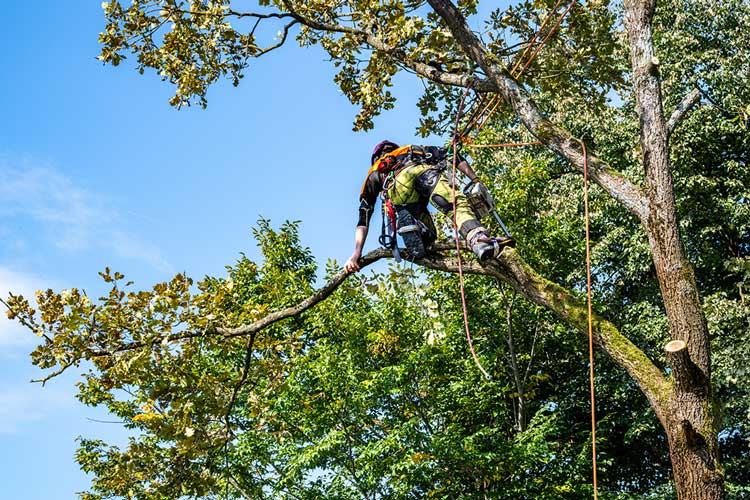How to Choose a Tree Care Service
Last updated November 2025

Our Ratings Tables will help you choose companies that can offer advice and perform the work.
Customer Reviews
Our Ratings Tables report results for companies that received 10 or more ratings on our surveys. We primarily surveyed Consumers’ Checkbook subscribers, but also invited randomly selected consumers to participate. Click here for further discussion of our customer survey and other research methods.
Although several area companies rate quite highly for the quality of their work, others receive low ratings from customers who were overcharged, got subpar results, or had their property damaged by careless, untrained workers.
Complaint Records
Our Ratings Tables also show counts of complaints we gathered from the Better Business Bureau (BBB) for a recent three-year period and complaint rates relative to the volume of work companies do.
Payment Policy
Check with companies to see if they will accept payment after the job is finished, which gives you leverage to ensure work is done properly and on time. Most companies will allow you to withhold the entire amount until completion, but a few require customers to pay at least half earlier. If possible, make all payments by credit card, which allows you to dispute the payment if things don’t go as planned.
Insurance
Check whether a company’s liability insurance and worker’s compensation insurance are current. Ask to see certificates of insurance, and call to verify coverage. If a company is not properly insured, it may not be able to compensate you for harm it causes you or your property, and may not be able to pay for injury to its own workers or other people, or for damage to your neighbors’ properties. If the company doesn’t pay, you may be liable—even for injuries to the company’s own workers. This is a serious concern because high-powered equipment, heavy branches and trunks, lofty heights, and proximity to power lines make tree work dangerous.


